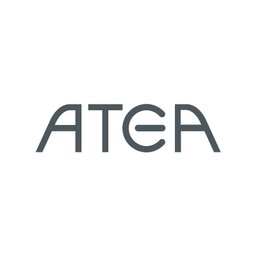Job Opportunities in Norway

September 16, 2024
Oslo universitetssykehus
Oslo
OTHER
Postdoctoral fellowship
Postdoctoral fellowship Division of Emergencies and Critical Care, Department of Research and Development, Oslo universitetssykehus HF
Apply for position
(in new tab)
About the position
A three-year postdoctoral fellowship funded by the Health South-East Authority is now available at the Department of Research and Development, Division of Emergencies and Critical Care, Oslo University Hospital. Together with the Intervention Center (IVS) at Oslo University Hospital (OUH), we have established an interdisciplinary group investigating hemodynamic effects related to laparoscopic liver resection and radio-frequency ablation of colorectal liver metastases.
The Human integrative cardiovascular control group (CIRCON, Institute for Basic Medical Sciences, IMB) has an extensive experience with the use of experimental methods for the study of cardiovascular and cerebral physiology. The CIRCON group will be collaborating with the Intervention Centre (IVS) at OUH, the Neurology Department (OUH) and the Geriatric Department (OUH) for this project.
The Human integrative cardiovascular control group (CIRCON, Institute for Basic Medical Sciences, IMB) has an extensive experience with the use of experimental methods for the study of cardiovascular and cerebral physiology. The CIRCON group will be collaborating with the Intervention Centre (IVS) at OUH, the Neurology Department (OUH) and the Geriatric Department (OUH) for this project.
Key information
Application deadline:
15.11.2024
Employer:
Oslo universitetssykehus HF
Town/city:
Oslo
Title:
Postdoctoral fellowship
Positions:
1
Full-time/part-time:
Full-time
Employment type:
Contract
Percentage of full-time:
100
Webcruiter ID:
4858323997
Social sharing :
Share on x
Share on Linked In
Share on Facebook
Share by email
Work Assignment
The successful candidate will be involved in leading at least one project and collaborate is several other studies. This project aims to investigate changes in the regulation of cerebral blood flow (CBF) intraoperatively in patients at risk for cerebral hypoperfusion and cognitive impairment after surgery and anesthesia. Neurocognitive impairment postoperatively is a recognized phenomenon that may persist several months postoperatively. Best Practices consensus papers suggest that baseline cognitive function should be routinely assessed in all older adults before surgery, because identifying the patients at increased risk may facilitate prevention, early diagnosis, and medical decision-making. In Norway, this is not implemented yet.
Cerebral autoregulation, the ability of cerebral vasculature to buffer changes in arterial blood pressure that protects cerebral perfusion from hemodynamic fluctuations, is challenged in disease, surgery and anesthesia. This renders the brain vulnerable to hypoperfusion and adverse cerebrovascular events. This project aims to study the CBF regulation in 1) healthy subjects during experimentally induced hypovolemia and 2) in frail and multimorbid patients undergoing surgery for colorectal liver metastasis under general anesthesia. We will determine the association with intraoperative incidents of cerebral hypoperfusion, lack of cerebral autoregulation and short and long term postoperative cognitive impairment. Brain neuroimaging and quality of life will also be used.
Our long-term goal is that assessment of cerebral autoregulation can be used to individualize hemodynamic treatment to optimize cerebral perfusion in patient populations at risk, such as patients with cerebrovascular disease, cardiorespiratory dysfunction, patients undergoing surgery and intensive care treatment. This can contribute to improved outcomes, reduced hospital stay and cost for the society.
We are looking for a dedicated person who can work both independently as well as in the context of a team.
Cerebral autoregulation, the ability of cerebral vasculature to buffer changes in arterial blood pressure that protects cerebral perfusion from hemodynamic fluctuations, is challenged in disease, surgery and anesthesia. This renders the brain vulnerable to hypoperfusion and adverse cerebrovascular events. This project aims to study the CBF regulation in 1) healthy subjects during experimentally induced hypovolemia and 2) in frail and multimorbid patients undergoing surgery for colorectal liver metastasis under general anesthesia. We will determine the association with intraoperative incidents of cerebral hypoperfusion, lack of cerebral autoregulation and short and long term postoperative cognitive impairment. Brain neuroimaging and quality of life will also be used.
Our long-term goal is that assessment of cerebral autoregulation can be used to individualize hemodynamic treatment to optimize cerebral perfusion in patient populations at risk, such as patients with cerebrovascular disease, cardiorespiratory dysfunction, patients undergoing surgery and intensive care treatment. This can contribute to improved outcomes, reduced hospital stay and cost for the society.
We are looking for a dedicated person who can work both independently as well as in the context of a team.
Absolute qualifications
- Potential candidates have completed a Ph D degree in a relevant field
- The candidate should be a medical doctor, with Medical Authorization in Norway (Norsk Legeautorisasjon).
- Excellent Norwegian and English written and verbal communication skills are required
- A background in neurology or geriatrics or anesthesiology or physiology is favored
- Previous postdoc experience is considered an advantage.
- Experience with one or more of the following research areas and techniques is favored: cognitive assessment, transcranial Doppler ultrasonography, cardiovascular monitoring
Personal qualities
- The candidate should be highly motivated and dedicated, and have a strong interest in scientific research
- The candidate should be able to work both independently as well as in the context of a team, and be well organized
-
Good communication skills are an advantage as the successful applicant is expected to interact well with patients, clinicians, and other members of the project team
We offer
- An ambitious and stimulating scientific environment with excellent opportunities for academic development
- Three-year full-time position or six-year 50% postdoc position
- Top modern and excellent lab facilities
- Attractive salary according to the guidelines from the Oslo University Hospital
- Favorable pension arrangements
Address:
Oslo universitetssykehus, Ullevål, Kirkeveien 166, 0450 Oslo, Norway
Open directions
(in new tab)
Contacts
Leiv Arne Rosseland
Avdelingsleder
Phone:
+4792204274
About the employer
Sammen med pasienten utvikler vi morgendagens behandling
Oslo universitetssykehus med våre 25 000 medarbeidere skal være en lærende og skapende organisasjon med evne til å tenke nytt. Vi skal ha en ledende rolle i utvikling av forskning og innovasjon, samt utvikling av morgendagens helsetjeneste, medisinsk behandling og presisjonsmedisin. Hos oss finner du noen av landets ledende eksperter innen sine fagfelt, og her blir du en del av Norges største helsefaglige arbeidsplass. Et inkluderende arbeidsmiljø preget av åpenhet og respekt er svært viktig for oss. Uansett hva du jobber med vil du få muligheten til å utvikle deg og benytte din kompetanse på et sted hvor det virkelig teller.
Oslo universitetssykehus med våre 25 000 medarbeidere skal være en lærende og skapende organisasjon med evne til å tenke nytt. Vi skal ha en ledende rolle i utvikling av forskning og innovasjon, samt utvikling av morgendagens helsetjeneste, medisinsk behandling og presisjonsmedisin. Hos oss finner du noen av landets ledende eksperter innen sine fagfelt, og her blir du en del av Norges største helsefaglige arbeidsplass. Et inkluderende arbeidsmiljø preget av åpenhet og respekt er svært viktig for oss. Uansett hva du jobber med vil du få muligheten til å utvikle deg og benytte din kompetanse på et sted hvor det virkelig teller.
We regret to inform you that this job opportunity is no longer available
Latest Job Opportunities

September 23, 2024
Kristiansand kommune
Helsefagarbeider 87 % vikariat ved Storebølgen Eg
Kristiansand
OTHER
View Details



September 23, 2024
Kristiansand kommune
Ny Fastlegeavtale på Vestre Legesenter
Kristiansand
OTHER
View Details

New Jobs from This Company


September 18, 2024
Oslo universitetssykehus
Vil du lede vårt arbeid med planlegging og anskaffelse av medisinsk teknologi til fremtidens sykehus?
Oslo
OTHER
View Details
September 17, 2024
Oslo universitetssykehus
Helsesekretær/sekretær - vikariat
Oslo
OTHER
View Details

September 17, 2024
Oslo universitetssykehus
Helsesekretær, Vikar operasjon- og intensivsavdelinger
Oslo
OTHER
View Details